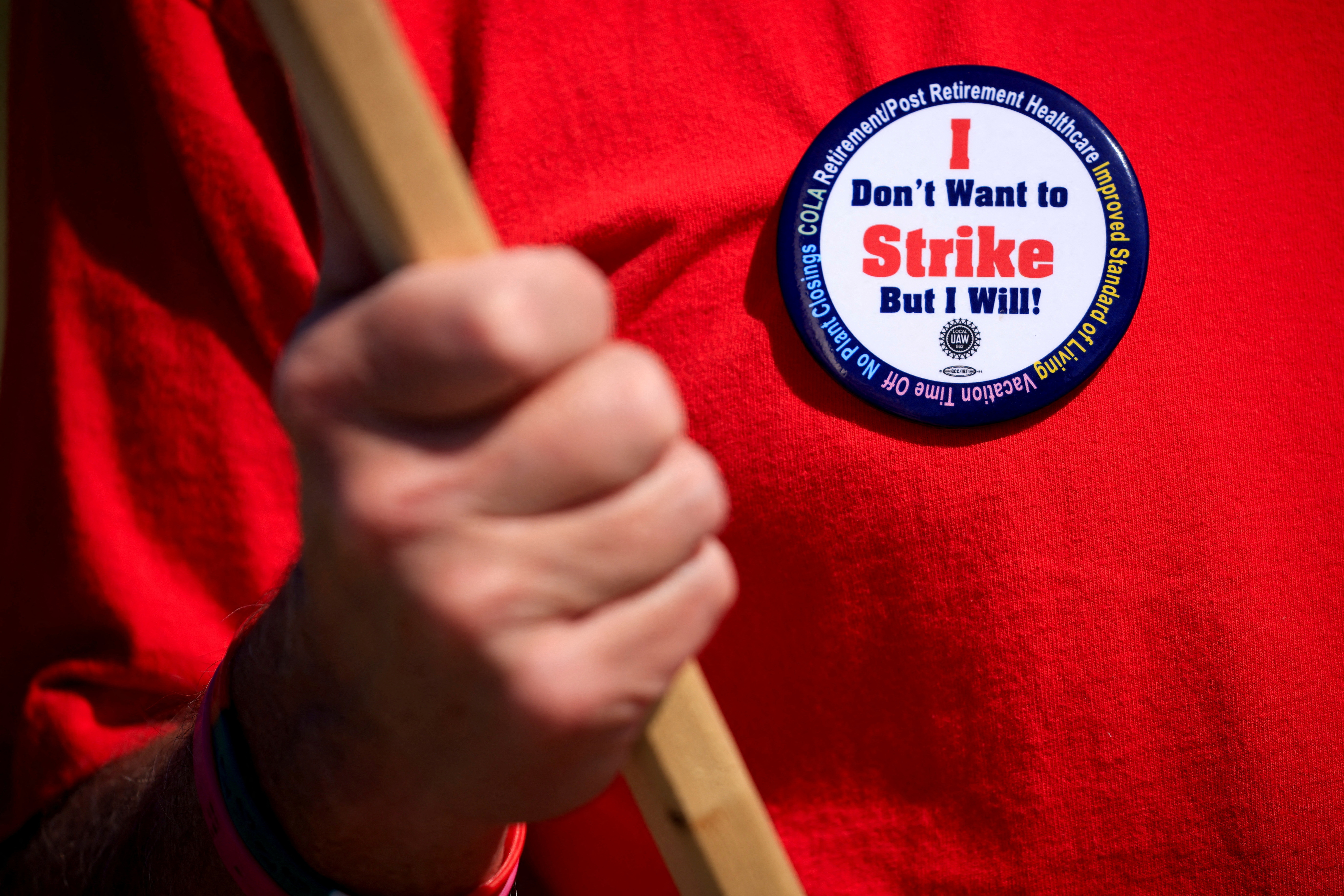In the third quarter earnings reports, JPMorgan and Citigroup announced an increase in their headcount. However, despite this positive development, the overall outlook for the banking industry remains uncertain. JPMorgan cited the rise in commercial banking expenses due to an increase in headcount in the front office and technology investments. Citigroup also acknowledged that while its headcount has increased, its technology investments will eventually lead to a reduction in staff numbers through automation.
Unfortunately, the picture is less optimistic for other bank workers, particularly investment bankers, as the geopolitical conflict in the Middle East raises concerns about future dealmaking and investment banking hiring. Credit Suisse disclosed plans to lay off 254 employees at their New York headquarters before the year's end. Citi executives also announced upcoming layoffs as part of a larger reorganization, with CEO Jane Fraser mentioning a reduction in duplication, complexity, and managerial positions. Goldman Sachs is expected to conduct its annual performance-based layoffs, while Barclays has already initiated a review process that is anticipated to affect up to 300 employees in their investment banking division.
These layoffs come at a time when banks are facing challenges in the M&A and IPO markets. While JPMorgan reported an overall increase in earnings and revenue, their investment banking revenue experienced a decline due to companies holding back on deals and stock sales amidst higher interest rates and stock market volatility. Both JPMorgan and Citi executives expressed cautious optimism about dealmaking activity but highlighted the ongoing decline in M&A and IPO transactions. The geopolitical unrest in the Middle East further adds uncertainty to predictions of a recovery in these markets.
In conclusion, while some banks have seen increases in headcount, the overall state of the banking industry remains uncertain. Layoffs and challenges in dealmaking continue to persist, and the geopolitical landscape poses additional risks.
United Auto Workers President Shawn Fain said on Friday that the union will not expand its strike against the Detroit Three automakers at the moment, but said its members would now walk out of additional facilities without warning rather than wait until Fridays to announce new plans.
“We’re entering a new phase of this fight and it demands a new approach,” said Fain in a livestreamed address on social media. He shifted tactics with little notice on Wednesday when he ordered a walkout at Ford Motor's (F.N) Kentucky Truck heavy-duty pickup and large SUV factory - the automaker's largest, most lucrative single operation globally.
"We're not waiting until Fridays anymore," he said. "Now there's only one rule - pony up."
The UAW strike has hit the one-month mark with more than 34,000 union members working at Ford, General Motors (GM.N), and Chrysler parent Stellantis (STLAM.MI) out on strike, including those at Ford's cash-cow Kentucky plant.
While Fain on Friday warned of potential strikes at all of the Detroit automakers, he reserved his harshest remarks for Ford, which he accused of trying to game the talks with inadequate offers, prompting Wednesday's walkout.
Referring to Ford CEO Jim Farley's lucrative pay package, he said Farley should "go get the big checkbook - the one Ford uses when it wants to spend millions on company executives or Wall Street giveaways.”
Ford officials could not be reached for comment on Friday.
The talks have grown increasingly tense as Fain has continued his campaign of playing off the automakers against each other. However, some union officials privately say that some workers have begun complaining about the length of the strike.
Wells Fargo analyst Colin Langan on Friday estimated the UAW's strike fund was still about $770 million, but industry officials have said the escalation against Ford's most profitable trucks will also hurt workers' profit-sharing checks.
Automakers have more than doubled initial wage hike offers to a range between 20% and 23%, agreed to raise wages along with inflation and improved pay for temporary workers. But the union wants higher wages still, the abolishment of a two-tier wage system, and a clear path to organizing new joint-venture battery plants.
Over the past four weeks, Fain has used Friday addresses to order additional walkouts or outline progress in bargaining.
The UAW has been intensively bargaining this week with Stellantis, including lengthy talks on Thursday. It is in discussions with GM about the parameters of a deal to include battery plant workers under a master labor agreement.
[1/4]A United Auto Workers (UAW) union member wears a pin while picketing outside Ford's Kentucky truck plant after going on strike in Louisville, Kentucky, U.S. October 12, 2023. REUTERS/Luke Sharrett Acquire Licensing Rights
Stellantis said on Friday it had made progress in narrowing the gaps on issues of disagreement in talks with the UAW. However, it added that as a result of the strike it had furloughed an additional 700 workers at facilities in Kokomo, Indiana, raising that total to 1,340.
GM declined to comment but noted negotiations continue.
Some analysts said the decision to shut down Kentucky Truck and other high-profit Detroit Three operations is a sign that the endgame could be starting in the labor dispute.
"Shutting down Ford's Kentucky truck plant has started to ratchet up pressure on GM and Stellantis and they're starting to make progress," said Arthur Wheaton, director of labor studies at Cornell University.
Ford and GM shares were down 1.1% and 2.2%, respectively, on Friday. Stellantis shares closed 0.4% lower in Milan.
'AT THE LIMIT'
On Thursday, a senior Ford executive said the automaker was "at the limit" of what it could spend on higher wages and benefits for the UAW. Its latest offer includes a 23% wage hike through early 2028.
"We have been very clear that we are at the limit," said Kumar Galhotra, head of Ford's combustion vehicle unit. "We stretched to get to this point. Going further will hurt our ability to invest in the business."
Fain responded on Friday: "I found a pathetic irony in that statement. You know who's reached their limit? The tens of thousands of Ford workers with no retirement security."
Todd Dunn, president of the UAW local that represents the 8,700 workers at Ford's Kentucky truck plant as well as those at the nearby Louisville assembly plant, said the truck plant walkout was necessary because Ford "took advantage of the fact they had a reprieve" for the past two weeks and stopped making progress on key bargaining issues.
Ford has warned it could be forced to furlough as many as 4,600 workers as early as Friday. The automaker's Louisville assembly plant, which builds compact Escape SUVs, could be forced to halt operations because it gets parts from Kentucky Truck, a union official told Reuters.
Ford said it is working with the UAW on a way to bring workers at joint venture EV battery plants into the UAW-Ford agreement.
Fain plans to visit striking Mack Trucks workers in Pennsylvania and Maryland this weekend. On Friday, he signaled the union will press the company to agree to cost-of-living allowances, or COLA, as part of a new deal.
Oscar winner George Clooney urged Hollywood studios on Friday to return to the bargaining table with striking actors to try and resolve their differences over a new labor contract.
Negotiations between the studios and the SAG-AFTRA actors' union were suspended on Wednesday after studios rejected a demand for a bonus tied to the number of streaming TV subscribers. Clooney called the breakdown in talks "worrisome."
"At least get in the room. Don't take a vacation," Clooney said when asked about the ongoing strike while attending a ceremony in Los Angeles at the Roybal School of Film and Television Production Magnet, which he co-founded.
The "Gravity" actor said SAG-AFTRA President Fran Drescher had told him she was ready to restart talks to try to end the work stoppage that started in July.
He said he hoped the Alliance of Motion Picture and Television Producers (AMPTP), which represents Netflix (NFLX.O), Walt Disney (DIS.N), and other companies, would decide to come back and negotiate.
"Hopefully we can just get in a room and get this thing solved," he said.
A spokesperson for the AMPTP did not immediately respond to a request for comment. On Wednesday, the group said the gap between the parties was "too great" and that conversations were "no longer moving us in a productive direction."
The suspension in talks interrupted attempts to end labor tensions that have put most U.S.-based film and television production on hold, cost the California economy billions, and left thousands of actors and crew members without work.


